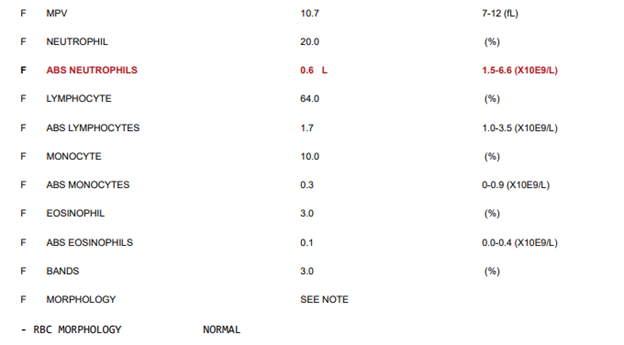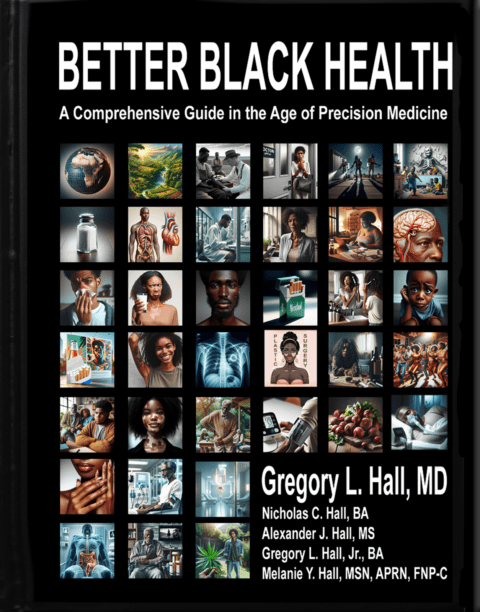Is There Something Wrong With Me?
I have had several patients ask me why the white blood cell (WBC) count on their CBC (complete blood count) panel was flagged (or red) as abnormal.

After digging deeper into the lab result, they saw this:

This is a classic example of “benign ethnic neutropenia,” which is a variation of normal that occurs disproportionately in the Black community. There is nothing wrong with this result, and you will require no further testing. It is considered “abnormal” because most “normal ranges” are based on research done on a predominantly White populations.
Benign Ethnic Neutropenia
In many racial groups, but mainly in African Americans, asymptomatic reductions in white blood cell counts are caused by decreased neutrophil counts. A neutrophil is a specific type of white blood count that fights infections. There’s an increased prevalence of benign ethnic neutropenia in people with roots in North Africa, the Middle East, and South Asia.
Healthy African Americans with low neutrophil counts get expensive tests and delayed treatment for an otherwise harmless condition. Researchers found statistically significant differences in neutropenia among races in a very large study.
Am I Affected?
Benign ethnic neutropenia affects 1 in 22 African American men and 1 in 40 African American women. In contrast, White Americans have a 1 in 126 chance of getting benign ethnic neutropenia. In African Americans, low neutrophil counts were linked to a chromosome that contains a receptor that affects white blood cell production. This phenomenon was examined by researchers at the National Institute of Health, who confirmed it had no impact on health.
There May Be a Health Benefit
One researcher showed that patients with low neutrophil counts actually had lower rates of infections and chronic disorders. Benign ethnic neutropenia usually follows a hereditary pattern, and so a more detailed family history in patients with a low WBC may reveal this as the cause.
Once benign ethnic neutropenia is discovered and incorporated into their past medical history, patients don’t need extensive monitoring, testing, or changes in care.
There are a number of other differences you may not be aware of, and they are all covered in Better Black Health: A Comprehensive Guide in the Age of Precision Medicine. You and your family need this groundbreaking book.

And don’t forget about the multivitamins.











